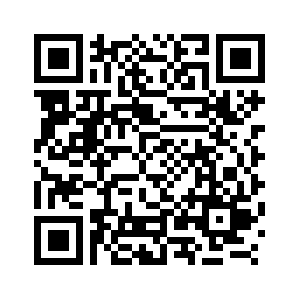BEIJING, Dec. 26 (Xinhua) -- Nucleic acid testing booths were a hallmark of China's regular COVID-19 prevention and control work over the past three years. Yet across the nation, many nucleic acid testing booths have been converted into temporary "fever clinics" in an orderly manner.
These changes are among the latest efforts from Chinese cities to cope with rising numbers of fever patients.
A converted nucleic acid testing booth, now a fever diagnosis and treatment station, was recently put to use in Hangzhou, east China's Zhejiang Province, with one doctor and one nurse.
More than 50 types of medicines to treat the common cold, phlegm and coughs are prepared at the station, according to Wang Danli, the on-site doctor.
"It was very convenient. It took less than 10 minutes to see the doctor, fill my prescription and settle the bill," a local resident surnamed Xu said. "Moreover, cold and fever-reducing medicines that are hard to get at pharmacies are accessible here."
Xu also expressed his hope that more such convenient service points could be established, which could greatly relieve residents' anxiety about medical treatment and medication.
Several districts in Shenzhen, Guangdong Province, are also transforming their testing booths into consultation rooms that can receive fever patients and prescribe basic medicines, according to officials and residents.
In Futian District, 53 such booths have been put into use as fever consultation rooms, according to the district's health bureau. In Bao'an District, 66 community health centers have engaged in similar projects to reuse idle testing booths.
The 4-square-meter consultation rooms can accommodate one doctor and one patient at a time and are equipped with disinfection equipment and a ventilation system. Their strategic locations have made it convenient for residents experiencing fever to seek treatment, said Chen Biqin, director of a community health center in Futian.
Many nucleic acid testing booths were made redundant after China scaled back mandatory testing. In addition to the consultation rooms, some have also been repurposed as vaccination rooms, according to the company that supplies the booths in Shenzhen.
Facing an influx of fever patients in recent days, many Chinese cities have rushed to open more fever clinics and stock up on medicines. Guangzhou, capital of Guangdong Province, has increased its number of fever clinics in hospitals from 114 to 199, as experts estimate the city's COVID-19 outbreak will peak in early January.
Last week, a temporary fever clinic with four consultation rooms was put into use at the Guang'an Gymnasium in Beijing's Xicheng District. It is equipped with a temporary pharmacy and medicine storehouse, providing sufficient antipyretic drugs and materials. ■



